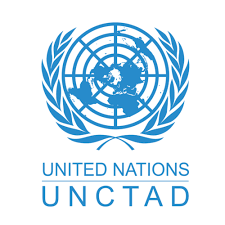
Over the past decade, flows of foreign direct investment have not kept up with economic growth nor with expansion in global trade. Since 2010 investment in the poorest countries has grown by barely 10 per cent.
This matters. Countries, especially developing ones, depend on foreign investment to plug funding gaps in areas such as health, food and fighting climate change. The UN’s trade agency, Unctad, estimates that developing countries face a gap of $4trn a year to fund their achievement of the sustainable development goals, up from $2.5trn in 2015 when the goals were adopted. Of this, the funding gap for the energy transition alone is $2.2trn.
These funds exist. The value of the sustainable finance market in 2022 – which includes green bonds, environmental, social and governance (ESG) funds, and similar products – grew more than 10 per cent to $5.8trn. The funds are simply not reaching projects on the ground in places where they are needed the most.
There are many reasons that explain the shortfall in foreign investment to developing countries, and they are often beyond the ability of individual governments to resolve. But an important action that governments can themselves take is to make life easier for investors.
This is known as investment facilitation. It includes providing information to investors, making rules and regulations transparent, and streamlining administrative procedures. In many countries there is a lot of scope to simplify procedures, permits and licenses, and to better explain to businesses what exact documents and paperwork they need to prepare in order to get their operations approved. Digital government tools, such as information portals and online single windows, can make a huge difference in facilitating investment.
Many governments around the world agree. Earlier this year a group of World Trade Organisation members concluded negotiations on the text of an Investment Facilitation for Development agreement. Regional groupings such as the Association of South-East Asian Nations (Asean) and the African Union are already working on their own versions, and the EU is pushing the concept through its bilateral partnerships.
[See also: Setting the stage for action on climate finance]
Our own research in Unctad shows that – independent of discussions at the international level – most countries have already made significant efforts domestically to adopt or improve on key investment facilitation measures. We scanned 193 countries for digital information portals and digital single windows, rating them on a scale of one to ten. We found that since 2016 the number of countries with online investment information portals increased from 130 to 169 and those with single windows from 29 to 75. Their quality also increased.
The good news is that developing countries are catching up. Their use of digital information portals and single windows has jumped. While on average their ratings are lower, several achieve top marks.
At Unctad, we have been helping governments understand the full range of actions that an investor needs to take to establish and run their business. And we show them how they can simplify those administrative procedures and place them online through a digital government platform. It is the equivalent of rolling out a digital red carpet for investment and sparing businesses weeks or even years of queuing in government offices and chasing paper.
The work is paying off. In Benin the number of companies being registered doubled in the space of two years. In Iraq it increased five times. Bhutan is moving all permits and licenses that companies require, including to run bus transport services or to pilot a drone, online.
In Mali we are working with the medical regulatory agency and the pharmaceutical sector to simplify and digitise approval processes and cut processing times from two years to three months. Not only will it bring more investment to Mali’s pharmaceutical sector, it will provide its residents with access to vital vaccines and life-saving drugs.
In Colombia we are working with the environment ministry to digitally certify companies based on the carbon they produce or, in the case of renewable energy providers, the carbon they remove. It will help the government calculate its progress in cutting greenhouse gases 51 per cent by 2030, which it committed to in Paris, and enable a carbon trading market to boost investment in energy transition.
Unctad’s World Investment Forum in Abu Dhabi next month is the first international conference on this topic. Government ministers are scheduled to discuss how investment facilitation can benefit their economies, and their delegations will look at implementation mechanisms and digital tools.
Expectations are high. Done right, investment facilitation can put developing countries on the right path to attract much-needed investment in vital areas such as renewables, health and infrastructure.
Register now to attend the World Investment Forum 16-20 October 2023 in Abu Dhabi on worldinvestmentforum.unctad.org.
[See also: On the road to Cop28]



